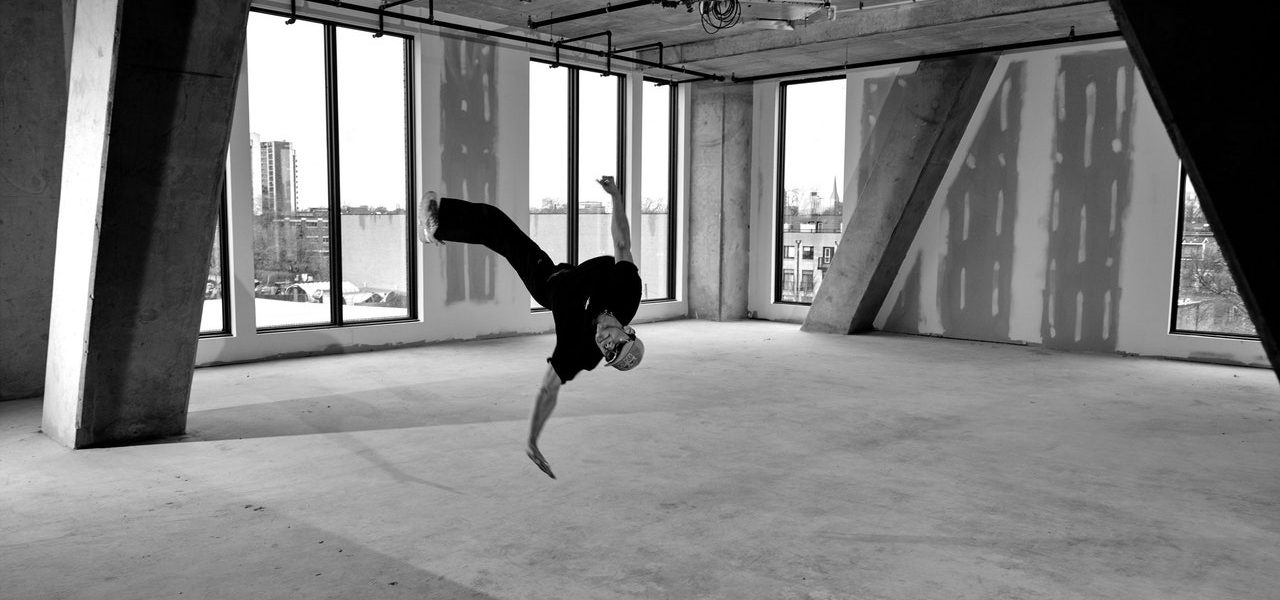Haha, look at those big shorts I'm wearing! This is in my friend's basement. We were going to practice there. It's actually quite funny to see this now. There are certain movements, there are certain shapes, the way I move is still very similar. But you can see the energy, you can see the hunger that I had at that age. That has changed.
What do you mean? What has changed?
It's always purer when you start. You dance because you love dancing. Now there are sponsors, there are media. When I went to an event at that age, everything was super exciting. I still have the same love, but it has definitely lost a bit of the luster.
Okay, standard question: is breaking a sport?
Good question.
You knew this was coming.
It's a conversation we need to have. Every time I'm asked this question, I say that I've always seen it as an art and a culture first and foremost. I never saw it as a sport. Most of us have never thought of it as a sport. It's self-expression, it's culture. It's part of hip-hop culture. Now it's about the sport. Honestly, I don't care how people label it. Hip-hop in general can transcend these labels.
I think it's kind of funny that there are two groups of people who agree that breaking isn't a sport: the haters who are angry that breaking should be in the Olympics because they don't respect it, and the breakers themselves. Although I don't understand the hate. What you're doing is really athletic, it's really hard.
There is also a lot of subjectivity involved. There's no cookie-cutter, “if you do this move you get this many points.” You have categories such as originality, execution and difficulty. But 'difficulty' is difficult to judge, because you could be doing something physically difficult, but you could also be doing something equivalent. creatively difficult. How do you measure those factors? It's still extremely subjective; it's very political when it comes to judging.
Right. And even when this was first announced as an event for the 2018 Youth Olympic Games, there was that B-boy petition accusing the World DanceSport Federation and the International Olympic Committee of exploiting breaking for their own gain. It got over 2,000 signatures – other B-boys, B-girls.
Yes, some people in the community don't want us in the Olympics. But there are a lot of OGs and people who are highly respected in the game and understand the opportunities that come from it. It's not perfect, but nothing ever is. Ultimately, the positives outweigh the negatives. So let's focus on that and just do our best.
Like you said, all of this isn't just a sport, it's a culture. And that's where things get really deep.
Naturally. You have to respect that side too. For me, I understand that I am a guest of this culture. I'm just someone who came in afterwards. It came out of Black and Latino culture. It came from the hood. It's grown out there. It touched people like me, who come from a middle-class family, just saw that break and said, “I want to do this.” The same goes for Europeans and Asians. If you go to Japan, there are a lot of children whose parents see it as something fun and positive for their child to do. I don't think that's a bad thing.
